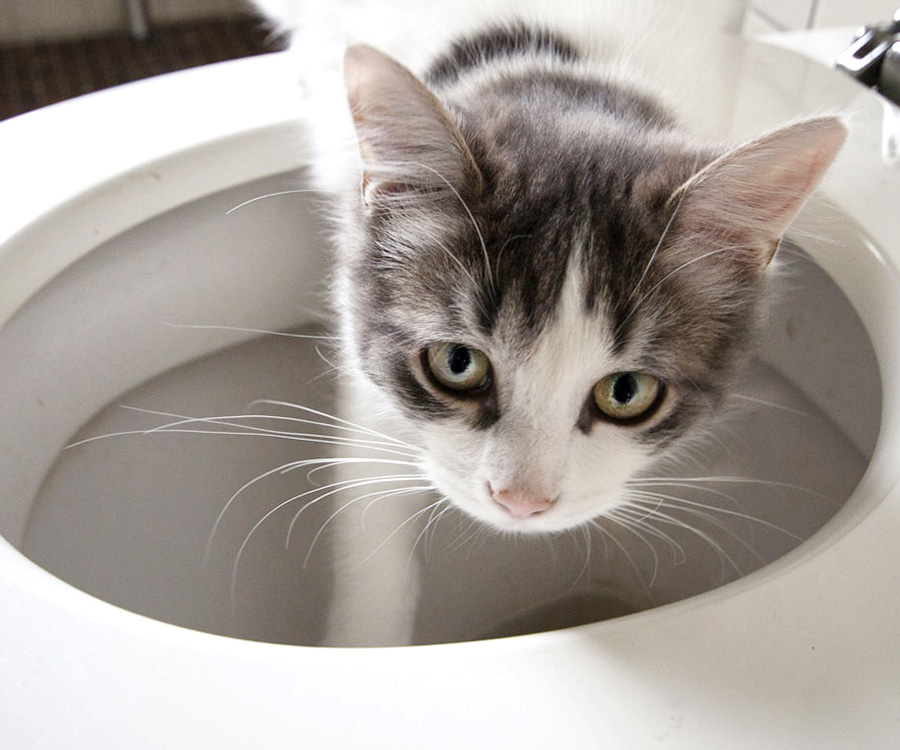Avoid Plumbing Problems: Never Flush Cat Poop Down Your Toilet - Expert Advice
Avoid Plumbing Problems: Never Flush Cat Poop Down Your Toilet - Expert Advice
Blog Article
This article down below on the subject of Don’t flush cat feces down the toilet is exceptionally enlightening. Read it yourself and see what you think of it.

Introduction
As pet cat owners, it's important to be mindful of how we deal with our feline pals' waste. While it might seem convenient to purge feline poop down the bathroom, this technique can have harmful repercussions for both the environment and human wellness.
Ecological Impact
Flushing feline poop presents dangerous microorganisms and bloodsuckers right into the supply of water, posturing a substantial risk to marine communities. These impurities can negatively affect marine life and concession water quality.
Wellness Risks
In addition to environmental problems, flushing feline waste can also pose wellness threats to people. Cat feces might consist of Toxoplasma gondii, a bloodsucker that can cause toxoplasmosis-- a possibly serious ailment, specifically for expectant women and people with damaged body immune systems.
Alternatives to Flushing
Fortunately, there are much safer and more responsible means to take care of cat poop. Consider the complying with alternatives:
1. Scoop and Dispose in Trash
One of the most typical method of taking care of feline poop is to scoop it into a naturally degradable bag and toss it in the trash. Be sure to make use of a dedicated litter inside story and dispose of the waste quickly.
2. Usage Biodegradable Litter
Go with naturally degradable cat litter made from products such as corn or wheat. These litters are eco-friendly and can be safely gotten rid of in the garbage.
3. Hide in the Yard
If you have a yard, take into consideration hiding feline waste in a marked location away from veggie yards and water sources. Make certain to dig deep sufficient to stop contamination of groundwater.
4. Mount a Pet Waste Disposal System
Invest in a pet waste disposal system particularly designed for cat waste. These systems utilize enzymes to break down the waste, lowering odor and environmental impact.
Final thought
Responsible family pet ownership prolongs beyond providing food and sanctuary-- it additionally entails appropriate waste monitoring. By refraining from flushing feline poop down the toilet and opting for alternate disposal techniques, we can reduce our environmental impact and secure human wellness.
Why You Should Never Flush Cat Poop Down the Toilet
A rose by any other name might smell as sweet, but not all poop is created equal. Toilets, and our sewage systems, are designed for human excrement, not animal waste. It might seem like it couldn’t hurt to toss cat feces into the loo, but it’s not a good idea to flush cat poop in the toilet.
First and foremost, assuming your cat uses a litter box, any waste is going to have litter on it. And even the smallest amount of litter can wreak havoc on plumbing.
Over time, small amounts build up, filling up your septic system. Most litter sold today is clumping; it is made from a type of clay that hardens when it gets wet. Ever tried to scrape old clumps from the bottom of a litter box? You know just how cement-hard it can get!
Now imagine just a small clump of that stuck in your pipes. A simple de-clogger like Drano isn’t going to cut it. And that means it’s going to cost you big time to fix it.
Parasitic Contamination
Believe it or not, your healthy kitty may be harboring a nasty parasite. Only cats excrete Toxoplasma in their feces. Yet it rarely causes serious health issues in the cats that are infected. Most people will be fine too if infected. Only pregnant women and people with compromised immune systems are at risk. (If you’ve ever heard how women who are expecting are excused from litter cleaning duty, Toxoplasma is why.)
But other animals may have a problem if infected with the parasite. And human water treatment systems aren’t designed to handle it. As a result, the systems don’t remove the parasite before discharging wastewater into local waterways. Fish, shellfish, and other marine life — otters in particular — are susceptible to toxoplasma. If exposed, most will end up with brain damage and many will die.
Depending on the species of fish, they may end up on someone’s fish hook and, ultimately on someone’s dinner plate. If that someone has a chronic illness, they’re at risk.
Skip the Toilet Training
We know there are folks out there who like to toilet train their cats. And we give them props, it takes a lot of work. But thanks to the toxoplasma, it’s not a good idea.

I recently found that content on Can You Flush Cat Poop Down The Toilet? while looking around the internet. I beg you set aside a second to promote this blog posting if you enjoyed reading it. Thanks so much for your time invested reading it.
Book Today Report this page